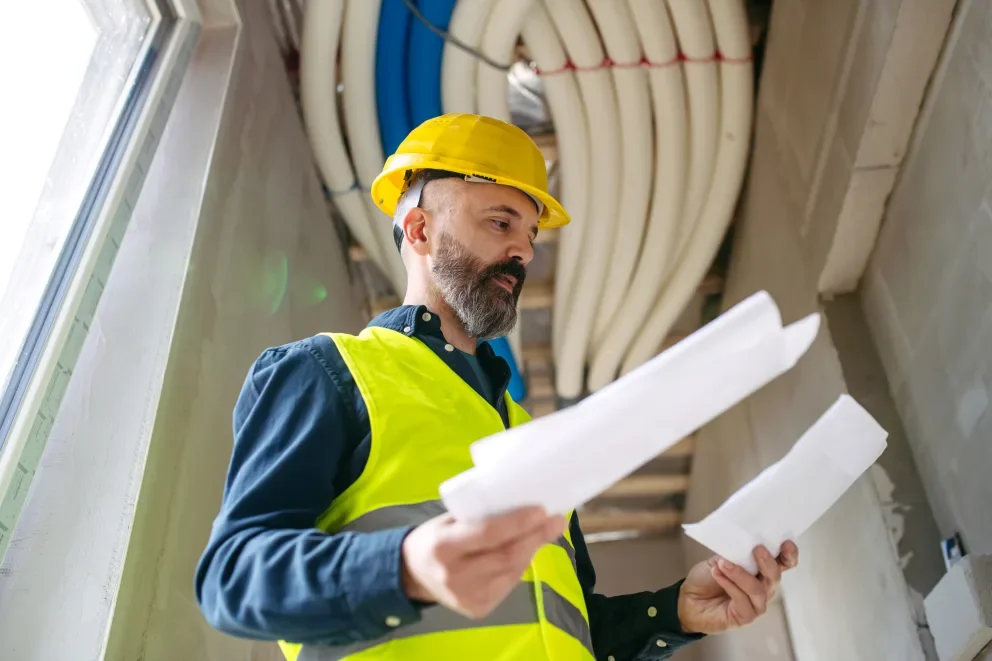Retail Construction Management Software is a specialized type of project management tool designed specifically for the retail construction sector. It encompasses a range of functionalities aimed at simplifying the complex processes involved in retail construction projects. This includes project scheduling, budget management, document management, as well as communication tools to facilitate effective collaboration among all stakeholders. It serves as an essential digital platform that streamlines operations, ensuring projects are completed within budget and timelines.
The primary objective of Retail Construction Management Software is to enhance efficiency and accuracy in managing retail construction projects. By integrating various aspects of project management, from the initial planning stages through to completion, it provides real-time monitoring and reporting capabilities. This enables project managers to make informed decisions, mitigate risks, and maintain control over project costs and schedules.
Furthermore, Retail Construction Management Software often includes features tailored to the unique needs of retail construction, such as compliance tracking for permits and inspections, and design management to ensure that the final build meets the brand’s standards. Its adoption results in more predictable project outcomes, optimized resource allocation, and improved profitability for retailers looking to expand or refurbish their physical locations.
Choosing the right Retail Construction Management Software is crucial for retail chains and construction professionals aiming to execute projects efficiently. This decision can significantly impact the success of retail build-outs, renovations, or new store constructions. The introduction to selecting an appropriate solution should factor in the software’s ability to address the specific challenges of retail construction, including tight schedules, compliance with brand standards, and coordination among various contractors and suppliers.
The exploration of Retail Construction Management Software starts with understanding its core benefits. These systems offer unparalleled visibility into project timelines, budgeting accuracy, and enhanced communication channels. For retail construction managers, this means being able to anticipate problems before they arise, manage changes more effectively, and ensure that every project milestone is hit on time and within budget.
Lastly, the choice of software should also hinge on its adaptability and scalability. With the retail landscape constantly evolving, having a construction management tool that can scale with your business and adapt to new challenges is paramount. This section will delve into selecting a system that not only meets your current needs but also supports future growth and expansion. From integrating with existing ERP tools to providing mobile access for on-the-go management, the right software can transform the way retail construction projects are delivered.
Key Features to Look for in Retail Construction Management Software
In the fast-paced world of retail construction, having the right management software is crucial. Such software streamlines operations, enhances communication, and ensures project completion within budget and time constraints. Therefore, selecting a feature-rich platform is vital for success. First and foremost, an intuitive design and user-friendly interface are key. Software that requires minimal training allows team members to adapt quickly, increasing productivity from the outset.
Moreover, real-time collaboration tools are essential. These enable seamless communication among project managers, contractors, and stakeholders. Consequently, decision-making is swift, and any issues can be addressed promptly, minimizing delays. Additionally, document management capabilities should not be overlooked. The ability to easily share, edit, and store documents in a centralized location simplifies access and improves project oversight.
Furthermore, scheduling features play a crucial role. They help in the efficient planning of tasks, allocation of resources, and tracking of project milestones. As a result, teams can stay on course and make adjustments as needed to meet deadlines. Budget and cost management tools are also imperative. They provide a clear overview of financials, helping to avoid overspending and ensuring profitability.
Equally important is mobile accessibility. With such functionality, users can update and access information from any location, ensuring that projects move forward even when team members are on the go. Finally, customer support and training resources are valuable. They ensure that your team can leverage the software to its full potential.
In conclusion, when choosing retail construction management software, it is critical to look for features that enhance efficiency, collaboration, and project control. By prioritizing an easy-to-use interface, real-time collaboration, comprehensive document handling, advanced scheduling, budget oversight, mobile access, and robust support, businesses can significantly improve their construction project outcomes.
The Role of Cloud Technology in Enhancing Retail Construction Projects
Cloud technology has transformed various industries, and its impact on retail construction is profound. It offers a platform for better collaboration, efficiency, and management of construction projects. In this realm, data is king. Access to real-time data ensures that project managers make informed decisions. This leads to reduced errors and enhanced project outcomes.
Firstly, cloud technology enables seamless communication. In a traditional setup, stakeholders often work in silos. However, with cloud platforms, everyone can access the necessary information from any location. This accessibility improves teamwork and speeds up the decision-making process. As a result, projects are more likely to be completed on time and within budget.
Moreover, cloud technology aids in resource management. It simplifies the tracking of materials and labor. Project managers can monitor resource use in real time. This prevents wastage and ensures that projects do not exceed their budgets. Additionally, it facilitates the quick adjustment of resources as project needs change.
Furthermore, cloud technology enhances document management. Traditional methods involve heaps of paperwork that can be lost or damaged. The cloud provides a secure space for storing documents. This makes it easy to retrieve and update information. Managing documents in the cloud also supports compliance with industry regulations. It keeps a transparent record of all transactions and communications.
Sustainability is another area where cloud technology makes an impact. It supports green building practices by optimizing resource use. This not only reduces the environmental footprint of construction projects but also often leads to cost savings.
Lastly, cloud technology empowers retail construction with advanced analytics. Project managers can analyze data to predict trends and potential issues. This proactive approach reduces risks and can significantly improve project outcomes.
In conclusion, the integration of cloud technology in retail construction brings numerous benefits. It fosters a collaborative environment, enhances efficiency, and supports sustainability. As the industry evolves, leveraging cloud technology will be key to staying competitive and meeting modern construction demands.
Challenges in Retail Construction Management and How Software Solutions Can Help
In the dynamic world of retail construction, managers face a myriad of challenges. Firstly, tight deadlines are common. Retail spaces must be completed swiftly to meet market demands and lease agreements. Additionally, budget constraints often place pressure on project managers. They must deliver high-quality results without overspending, a balance that can be tough to achieve.
Moreover, coordinating a diverse team is another significant hurdle. A retail construction project involves architects, contractors, subcontractors, and suppliers. Ensuring smooth communication and workflow among these parties is crucial. Furthermore, compliance with local regulations and standards cannot be overlooked. Retail constructions must adhere to a set of laws and guidelines, which can vary significantly from one location to another.
In response to these challenges, software solutions have emerged as a powerful tool. For instance, project management software enables better scheduling and budget tracking. With it, managers can more efficiently allocate resources and avoid delays. Likewise, collaboration tools enhance communication among team members. They provide a platform for sharing updates, documents, and feedback in real time.
Compliance management software simplifies adherence to regulations. It can alert managers to changes in local laws, ensuring projects remain compliant. Meanwhile, technology for document control assists in organizing and safeguarding important project documents. This protection is vital for smooth operations and auditing purposes.
In conclusion, while retail construction management is fraught with challenges, modern software solutions offer a way forward. These tools not only streamline project processes but also improve accuracy and compliance. As a result, managers can deliver quality retail spaces on time and within budget, overcoming the hurdles that once seemed insurmountable. This technology is transforming the landscape of retail construction, paving the way for more efficient and effective project management.
Integrating Sustainability Practices in Retail Construction through Management Software
In today’s rapidly evolving retail landscape, the integration of sustainability practices in construction is not merely an option but a necessity. This fundamental shift towards greener practices is increasingly facilitated by the innovative use of management software. Such tools have emerged as game-changers, enabling project teams to streamline processes and adhere to sustainability standards with unprecedented precision.
Initially, the design phase benefits significantly from specialized software. Here, architects and engineers collaborate using platforms that optimize resource use. For instance, they can select materials that are not only durable and cost-effective but also environmentally friendly. Moreover, the software allows for the simulation of energy consumption, leading to designs that maximize natural light and minimize energy waste. Furthermore, these platforms facilitate efficient waste management plans, ensuring that the construction process itself adheres to green principles.
During construction, management software plays a critical role in tracking the sustainability goals. It ensures that all aspects of the project align with environmental standards. The software does this by monitoring material usage and waste generation in real-time. Consequently, project managers can make timely adjustments to keep the project on its sustainable course.
Additionally, the software aids in maintaining compliance with regulatory standards. It keeps updated records of all sustainability certifications and permits. This feature is invaluable, as it helps avoid costly delays and fines that can arise from non-compliance.
Post-construction, the software continues to offer benefits by facilitating the maintenance of green building standards. It can track energy and water consumption, prompting necessary adjustments to maintain efficiency. Plus, by analyzing data over time, the software can suggest further improvements, ensuring that the retail construction remains at the forefront of sustainability.
In conclusion, the role of management software in embedding sustainability practices in retail construction cannot be overstated. By enhancing efficiency, ensuring compliance, and enabling continuous improvement, it supports the construction industry’s vital transition towards a more sustainable future.
Future Trends in Retail Construction Management Software
The landscape of retail construction is evolving rapidly, thanks to technological advancements. As we look ahead, several key trends in construction management software are set to redefine the industry. These innovations promise to enhance efficiency, boost productivity, and ensure sustainability in construction practices.
Firstly, integration capabilities are expected to take center stage. Future software will likely offer seamless integration with a wide array of tools and platforms. This development means project managers can easily share data across systems, improving communication and collaboration among teams. Additionally, real-time updates will become the norm, enabling decision-makers to act swiftly and accurately.
Moreover, the emphasis on sustainability is becoming more pronounced. Upcoming software versions are anticipated to include features that help monitor and manage the environmental impact of construction projects. For instance, they might offer insights into the most eco-friendly materials and methods, assisting firms in meeting green building standards.
Artificial intelligence (AI) and machine learning (ML) are also set to play pivotal roles. These technologies could revolutionize project planning and risk management by predicting potential delays and suggesting optimal solutions. Furthermore, they might enhance safety protocols by analyzing data from various sources to predict and prevent accidents on the construction site.
Lastly, there is an expected surge in user-friendly design and mobile access. Future software will likely be more intuitive, making it easier for all team members, regardless of their tech-savviness, to navigate and utilize its features. Mobile access will facilitate on-the-go management, allowing project managers to stay updated and make informed decisions from anywhere.
In conclusion, the future of retail construction management software is bright, with integration, sustainability, AI and ML innovations, and user-friendly mobile access leading the charge. These advancements promise to transform the construction landscape, making operations more efficient, eco-friendly, and safe.



